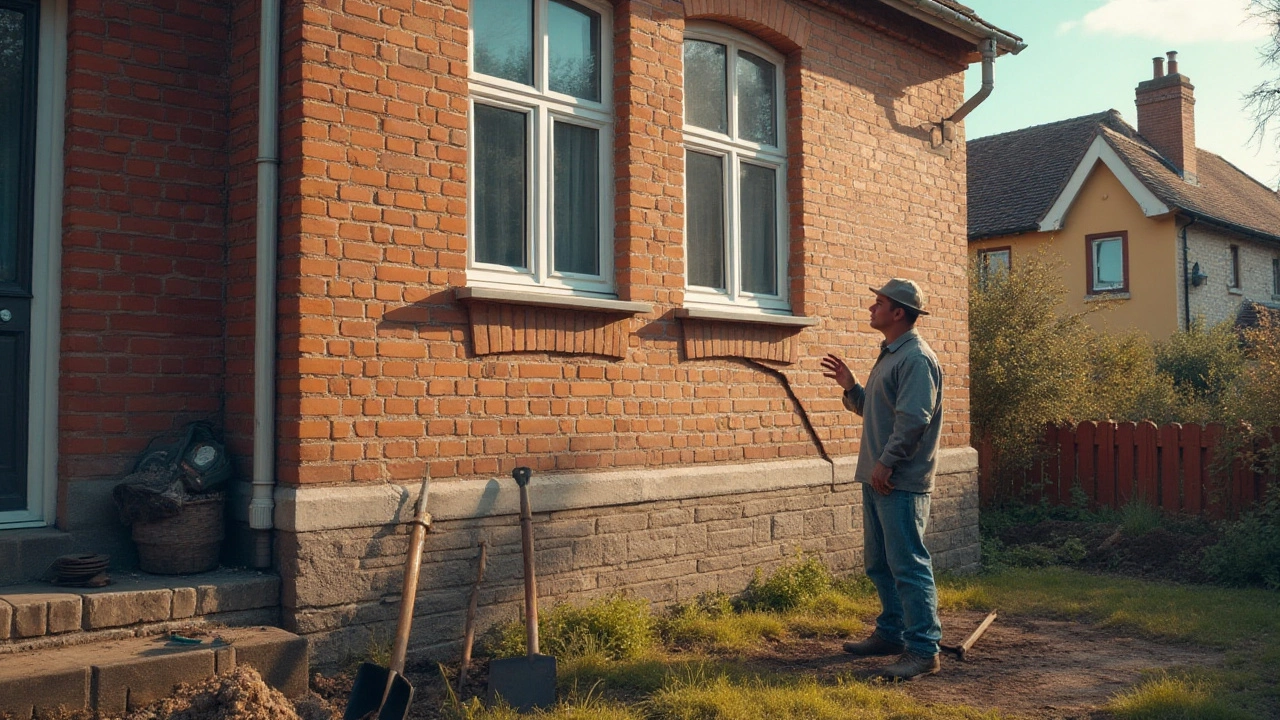Foundation Repair Costs – What You Need to Know
If your home has a cracked or sinking foundation, the first thing you’ll wonder is how much it will cost to fix. The answer isn’t one‑size‑fits‑all, but understanding the main price drivers can save you time and money. Below we break down typical price ranges, what influences the bill, and how to get a fair estimate.
Typical Price Ranges for Common Repairs
Most homeowners see a cost between £1,000 and £5,000 for basic repairs like sealing small cracks or reinforcing a shallow slab. Larger issues, such as major horizontal cracks, bowing walls, or deep underpinning, can push the price to £10,000–£30,000 or more. A simple horizontal foundation crack repair often lands around £2,500‑£4,000, while a full underpinning job may run £15,000‑£25,000 depending on soil conditions and house size.
Factors That Influence Foundation Repair Prices
Extent of damage. A hairline crack costs far less than a wide, structural split. Inspectors will grade the damage and give a clear scope of work, which directly affects the quote.
Soil type and moisture. Expansive clay soils swell with water and shrink when dry, creating movement that can stress foundations. Fixing problems in these soils often requires additional drainage or chemical injection, raising the overall cost.
Accessibility. If the foundation is hard to reach—think a house with a basement or a tight crawl space—labor time goes up and equipment may need special adjustments.
Repair method. Options range from epoxy injection, carbon fibre reinforcement, steel braces, to full underpinning. Each method has its own material cost and labour hours.
Location. Prices vary across the UK. Urban areas with higher labour rates will be pricier than rural regions where contractors may have lower overheads.
Contractor experience. Skilled firms with good reputations might charge a premium, but they also reduce the risk of future problems. Look for certifications, insurance, and customer reviews before signing.
To keep your budget in check, ask for a detailed breakdown that shows labour, materials, and any extra fees for site preparation, permits, or waste removal. A transparent quote helps you compare offers without hidden surprises.
Most homeowners also wonder whether they can DIY the repair. While sealing small surface cracks is doable with a DIY epoxy kit, structural issues need professional assessment. Cutting corners on a major repair often leads to higher costs down the line when the problem reappears.
Getting multiple quotes is a smart move. Provide each contractor with the same set of information—photos, crack measurements, and a brief description of moisture issues—so the estimates are comparable.
Finally, remember that fixing a foundation isn’t just about the price tag. A solid foundation protects your home’s value, safety, and energy efficiency. Investing in a proper repair now can save you thousands in future damage, resale losses, or insurance claims.
If you’re ready to start, contact a few local specialists, ask about their warranty terms, and schedule an on‑site inspection. With the right information, you’ll know exactly what foundation repair costs to expect and how to plan your budget confidently.

